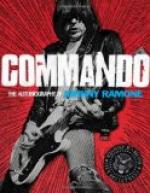Here and there were some Uitlanders who had remained faithful to us. All the others had gradually disappeared, either because they were taken prisoners, or killed through their somewhat foolhardy courage, or because they had left the country in disappointment. The townspeople were by no means superior to the farmers. There were traitors and ‘hands-uppers’ among them as well. We have been bitterly disappointed in people of all classes, but particularly in the so-called ‘gentlemen.’
Our condition and appearance were indeed striking. During the heat of the day, when the dust lay thickly about us, we sat in our ragged clothes, with shaggy, uncombed beards, on our poor, hardly-treated ponies, meekly staring in front of us, seemingly indifferent to the moral hurt that we were suffering and the physical pain that we felt in all our limbs after a long, tiring ride. At the start of one of our journeys an animated conversation sometimes helped to pass the time, but it soon flagged, leaving us staring in front of us in the usual dispirited, dull way. Our talk became daily more prosaic and superficial. We had not the energy to express our deepest sentiments, and things which were formerly pleasant were strange to us now. We had no spur to enliven our thoughts in our monotonous life. To the careless there was nothing startling in this moral numbness, but the more sensitive among us grieved over it, and were humiliated by the shallowness that had come into our lives.
The small necessaries of our material existence had become essential to our happiness. If we lost a knife, or if a pot or kettle broke, or a mug was stolen from us, we were depressed for days, as if a heavy blow had fallen upon us. It was not easy to fight against that bitter feeling of depression. Our only safety lay in the fact that we were conscious of the demoralizing effect of these small disappointments of commando life, for to know one’s self is always the first step towards conversion.
Some qualities of our highest nature were systematically suppressed. We prided ourselves on our fierce hatred of the enemy, and considered it a mark of patriotism, and we rejoiced when he fell beneath our bullets or when the plague broke out. We even wished that a great European war might begin, if only we might keep our country, and as a consequence of our righteous patriotism an inclination to cruelty became one of the predominant traits in the character of the burghers.
The commando life tended to make many of us melancholy. Wherever we came the thought was forced upon us that our beloved country was deeply injured, morally and materially. We ourselves saw everywhere homes and fields destroyed, women and children taken away by force, and cattle stolen; and rumours told of the most terrible outrages committed upon helpless women and children. If it were not that one becomes hardened to all outward impressions, our commando life would have been pitiful indeed. So we became hardened to almost all these things, but the thought of the ill-treatment of those dear to us, on whose happiness our own happiness depends, was constantly with us, and to that we did not become hardened.




